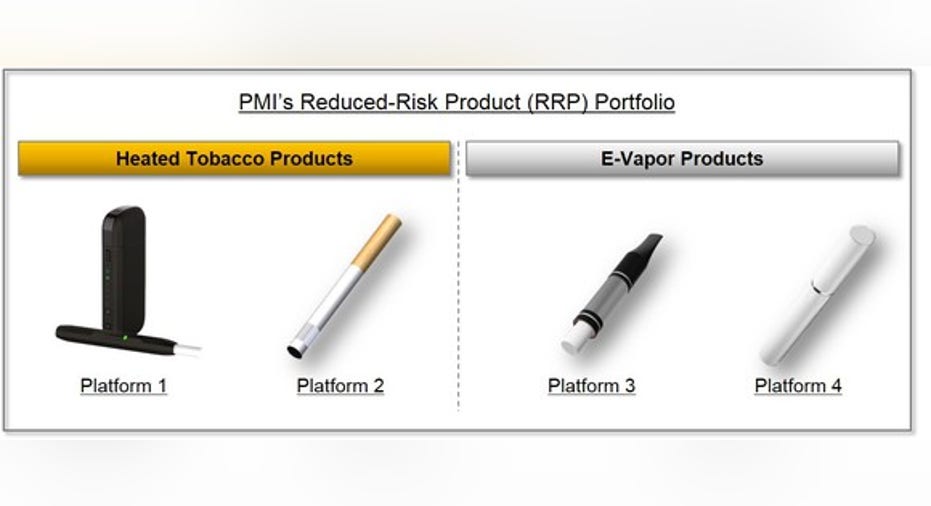What Philip Morris Learned From Japan

Philip Morris International (NYSE: PM) is seeking to revolutionize the tobacco industry with its iQOS alternative to conventional cigarettes, and so far, performance in test markets has been extremely strong. Philip Morris has high hopes for iQOS, expecting it eventually to contribute to a portfolio of reduced-risk products that could entirely replace traditional cigarettes. Yet in order to do so, Philip Morris will have to be sensitive to the needs of each market it serves while meeting anticipated strong demand. Fortunately, the tobacco company's experience in rolling out iQOS in Japan has taught it some valuable lessons that should improve how it handles introducing the product in other key markets worldwide.
When you have a hot product, you have to be able to meet demand
One huge problem that Philip Morris has faced in Japan is that iQOS was even more successful than the company anticipated. As a result, Philip Morris hasn't been able to produce enough HeatSticks tobacco inserts to satisfy consumers once they've purchased the iQOS device, and that in turn has led to a less than ideal experience for customers. Moreover, it has forced Philip Morris to slow introduction of iQOS systems, because it doesn't want to be in a position of having disappointed customers early in the introduction process.
Image source: Philip Morris International.
In response, though, Philip Morris has dramatically boosted production. The company expects to have capacity of 32 billion units annually in 2017, but even that boost isn't necessarily going to be enough to satisfy demand. As CFO Jacek Olczak said at a recent conference:
The worst situation for Philip Morris is when it has built up demand for the iQOS product but then faces out-of-stock challenges at key retail distribution locations. The ramp-up in production should alleviate some of those concerns, but further steps are also necessary.
When you have production constraints, you have to be measured in the pace of growth
Even with dramatic increases in production of HeatSticks, Philip Morris still can't afford to grow as quickly as the market might otherwise support. To sustain forward momentum while keeping control of the market going forward, the tobacco giant has limited the availability of the iQOS system in certain markets. By doing so, Philip Morris has artificially depressed demand for HeatSticks. As long as the tobacco inserts are the chokepoint in the capacity vs. demand equation, measured system sales can keep demand lower.
Yet that strategy comes at the risk of disappointing would-be customers who would like to use iQOS but can't find the device. That's an especially bad result, because early evidence shows that those who try iQOS tend to stick with it. When Philip Morris looked at its post-launch markets, it found that only a low-single digit percentage of customers who fully convert to iQOS end up switching back to cigarettes. If Philip Morris can't get all of those would-be customers on the path to iQOS conversion, then it's missing out on a long-term opportunity that's essential to its long-term core strategy.
When you have a strong brand, use it
Finally, Philip Morris has found that smoker awareness of its Marlboro brand has helped in raising awareness of iQOS. Customers pay attention when the maker of a well-known product creates an innovative new offering, and Philip Morris believes that much of the uptick in Japan stemmed from the fact that 90% of smokers were at least familiar with Marlboro.
As Philip Morris International rolls out the iQOS system in more markets across the globe, it can learn a lot from its experience in Japan. If product introductions are as successful worldwide as they were in the island nation, then Philip Morris will have to prioritize dramatic production capacity increases in order to meet skyrocketing demand and achieve its long-term vision for the tobacco industry going forward.
10 stocks we like better than Philip Morris InternationalWhen investing geniuses David and Tom Gardner have a stock tip, it can pay to listen. After all, the newsletter they have run for over a decade, Motley Fool Stock Advisor, has tripled the market.*
David and Tom just revealed what they believe are the 10 best stocks for investors to buy right now... and Philip Morris International wasn't one of them! That's right -- they think these 10 stocks are even better buys.
Click here to learn about these picks!
*Stock Advisor returns as of February 6, 2017
Dan Caplinger has no position in any stocks mentioned. The Motley Fool has no position in any of the stocks mentioned. The Motley Fool has a disclosure policy.



















